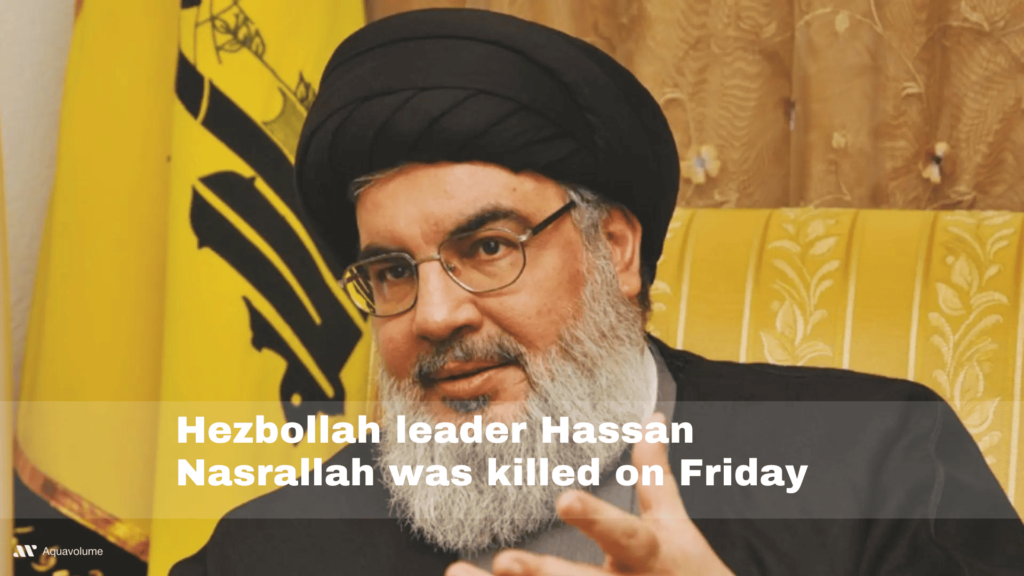
On Friday, the landscape of Middle Eastern politics shifted dramatically with the confirmation of Hassan Nasrallah’s death, the long-time leader of Hezbollah. A series of airstrikes by the Israeli Defense Forces (IDF) targeted an underground command center in southern Beirut, marking a pivotal moment not only for Hezbollah but for the entire region. This article explores the implications of Nasrallah’s death and what it might mean for the future of Hezbollah and the broader geopolitical climate.
Table of Contents
The End of an Era
Hassan Nasrallah had been the face of Hezbollah since 1992, taking over after the assassination of his predecessor, Abbas al-Musawi, in an Israeli airstrike. Under Nasrallah’s leadership, Hezbollah transformed from a local militia into a key player in the Iran-led “Axis of Resistance,” gaining significant influence and military capabilities. His death raises critical questions about the future leadership and operational effectiveness of the organization.
Israel’s Tactical Move
The IDF confirmed that the airstrikes that resulted in Nasrallah’s death were a deliberate operation aimed at neutralizing threats posed by Hezbollah. Israeli Prime Minister Benjamin Netanyahu reportedly ordered the strikes shortly after delivering a speech at the United Nations, where he vowed to continue military actions against the group. This strategic targeting of Nasrallah not only eliminates a key leader but also aims to disrupt Hezbollah’s command structure.
Consequences for Hezbollah
The immediate aftermath of Nasrallah’s death presents a significant challenge for Hezbollah. Analysts, including Hanin Ghaddar from the Washington Institute for Near East Policy, suggest that the loss of such a prominent leader could lead to disarray within the group. With key commanders also killed in the airstrikes, the operational capabilities of Hezbollah may be severely hampered, raising questions about their ability to coordinate responses to Israeli actions.
Reactions from Iran
In the wake of Nasrallah’s death, Iran quickly reaffirmed its support for Hezbollah. Posters proclaiming “Hezbollah lives” appeared throughout Tehran, indicating that the group is expected to continue its resistance against Israel. Iran’s Supreme Leader, Ayatollah Ali Khamenei, expressed solidarity with Hezbollah and called on the Lebanese people to confront Israeli aggression, highlighting the interconnected nature of regional politics.
Human Toll of the Conflict
The humanitarian impact of the ongoing violence is grave. Reports indicate that the recent escalation has led to hundreds of casualties, with approximately 90,000 people displaced from their homes. The human cost of these military operations underscores the dire consequences of the conflict, raising urgent calls for international attention and assistance.
Looking Ahead
As Hezbollah contemplates its next steps, the absence of a clear leader could complicate their strategic responses. The IDF has made it clear that it remains vigilant, warning that it can reach anyone who poses a threat to Israel. This situation leaves both Hezbollah and its Iranian allies facing a critical juncture in their strategies moving forward.
Conclusion
Hassan Nasrallah’s death marks a significant turning point that could reshape the landscape of the Middle East. As tensions escalate and Hezbollah grapples with the implications of losing its long-standing leader, the region braces for potential fallout. The coming weeks and months will be crucial in determining whether this event leads to a de-escalation of violence or a broader conflict.
FAQs
- What led to Hassan Nasrallah’s death?
- Nasrallah was killed in a targeted Israeli airstrike on an underground command center in Beirut.
- How long did Nasrallah lead Hezbollah?
- He had been the leader since 1992, following the death of Abbas al-Musawi.
- What are the potential consequences of his death?
- His death could lead to a power vacuum within Hezbollah and possibly escalate regional conflicts.
- How did Iran react to Nasrallah’s death?
- Iran expressed support for Hezbollah, emphasizing that the group would continue its resistance against Israel.
- What is the current humanitarian situation in Lebanon?
- The ongoing conflict has resulted in significant casualties and displacement, with many people fleeing their homes due to violence.
